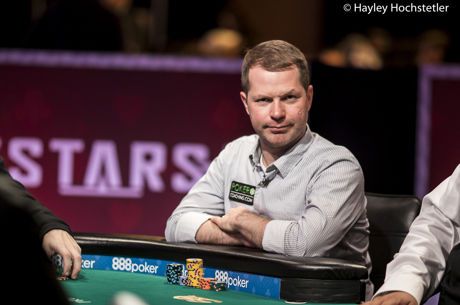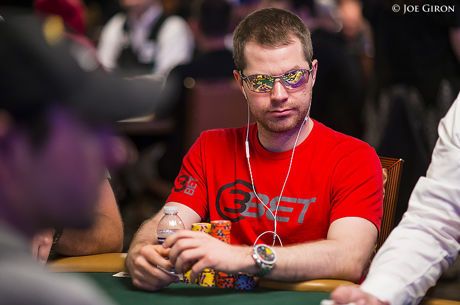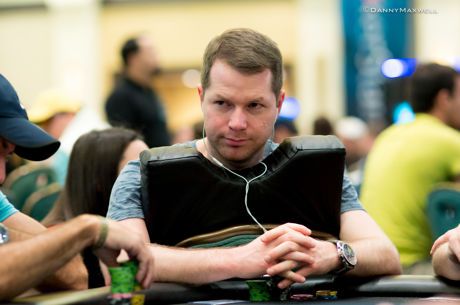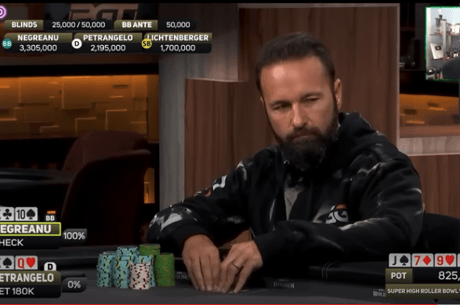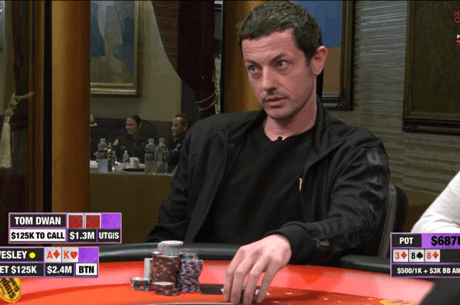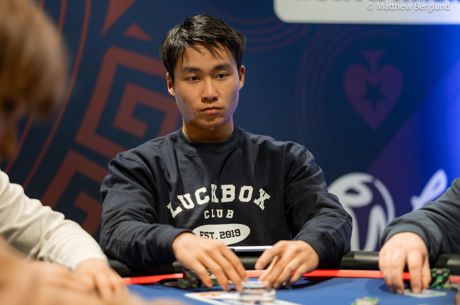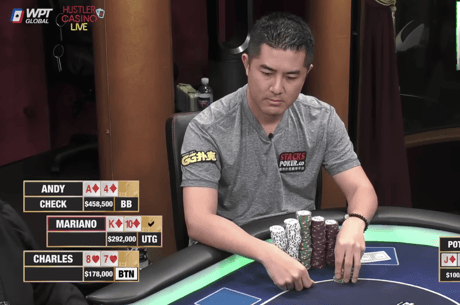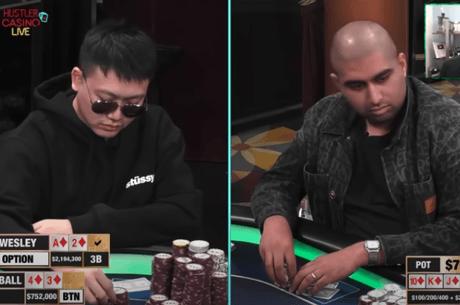Could You Make This Flush-Over-Flush Fold Against Phil Ivey?
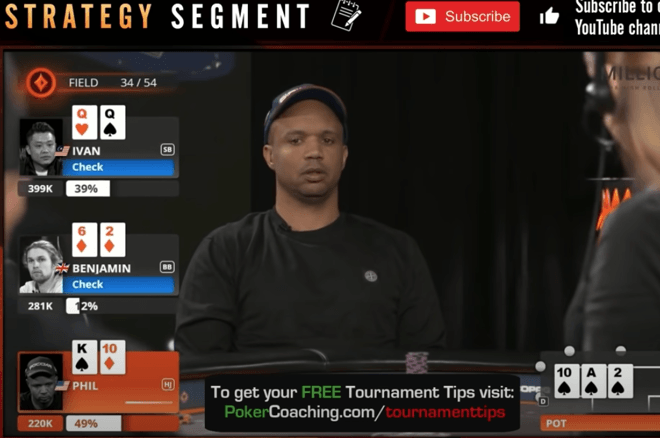
Last year, Phil Ivey returned to the tournament circuit after a fairly long hiatus. It was such a pleasure watching one of the world��s very best competing at such a high level again. In this week��s strategy hand, we watch Ivey take on Ivan Leow, who is known to be a fairly loose and aggressive player.
Things are always going to get interesting when you run an ace-high flush into a king-high flush. Can Leow find the hero fold? Let��s dive into this hand from the partypoker MILLIONS Sochi $25K Super High Roller when 34 of 54 players remained.
It took place with the blinds at 3,000/6,000/6,000 with Leow sitting on a stack of 412,000 (69 bb) and Ivey on 233,000 (39 bb). The latter opened for 13,000 from the hijack holding the K?10? and the former just called with the Q?Q? in the small blind. Ben Heath was in the big blind with the 6?2? and opted to call.
The 10?A?2? flop gave Leow a queen-high spade flush draw and he checked. Heath did the same and Ivey, who flopped middle pair and the nut flush draw, had to decide what to do. He should be betting here pretty frequently, but I actually don��t mind checking it back here with this hand. If you bet and get raised, it��s pretty miserably bad. I don��t mind checking, but betting is perfectly fine.
Ivey does bet 15,000, which is on the smaller side. I like it as a lot of hands that��ll be drawing thin will make the call. Leow does come along, Heath gets out of the way, and it was heads-up to the 7? turn.
It was a nightmare card for Leow, who checked to Ivey. He wanted to bet an amount that would make it pretty easy for him to go all in on the river, so with 75,000 in the pot and 205,000 behind it was a matter of finding the sweet spot. If he bet 50,000, which was two-thirds pot, and Leow called, the pot would grow to 175,000 on the river and Ivey would have 155,000 behind in which to jam. I think that��s nice sizing all around.
Ivey settled on a bet of 45,000, Leow called, and the pot grew to 165,000. With 160,000 remaining in his stack, Ivey had an all-in pot-sized bet left for the river, which was the 2?. Leow checked again and Ivey did in fact move all in despite the river pairing the board.
It��s worth noting that in a different tournament where your opponents are weak and tight and would fold to a shove with the J? or Q?, then opting for a smaller bet would be better.
So, what would you do in Leow��s shoes here? Would you call or fold to the all-in jam? It��s a pretty dicey spot. Against good, world-class players, I think you need to make the crying call. However, if you think your opponent will not find an adequate amount of bluffs then an argument for a fold could be made.
Most people don��t bluff often enough because they expect to get called. If your opponent thinks that you expect them to call, they should state to make exploitative folds. From a purely GTO perspective, Leow should not fold this hand.
That said, Leow was playing a high level of poker against a world-class player. He found the fold and saved himself some chips.
For a more thorough breakdown of this hand, check out my thoughts in the following video used with permission from partypoker:
Jonathan Little is a professional poker player and author with over $7,000,000 in live tournament earnings. He writes a weekly educational blog and hosts a podcast at JonathanLittlePoker.com. Sign up to learn poker from Jonathan for free at PokerCoaching.com. You can follow him on Twitter @JonathanLittle.

